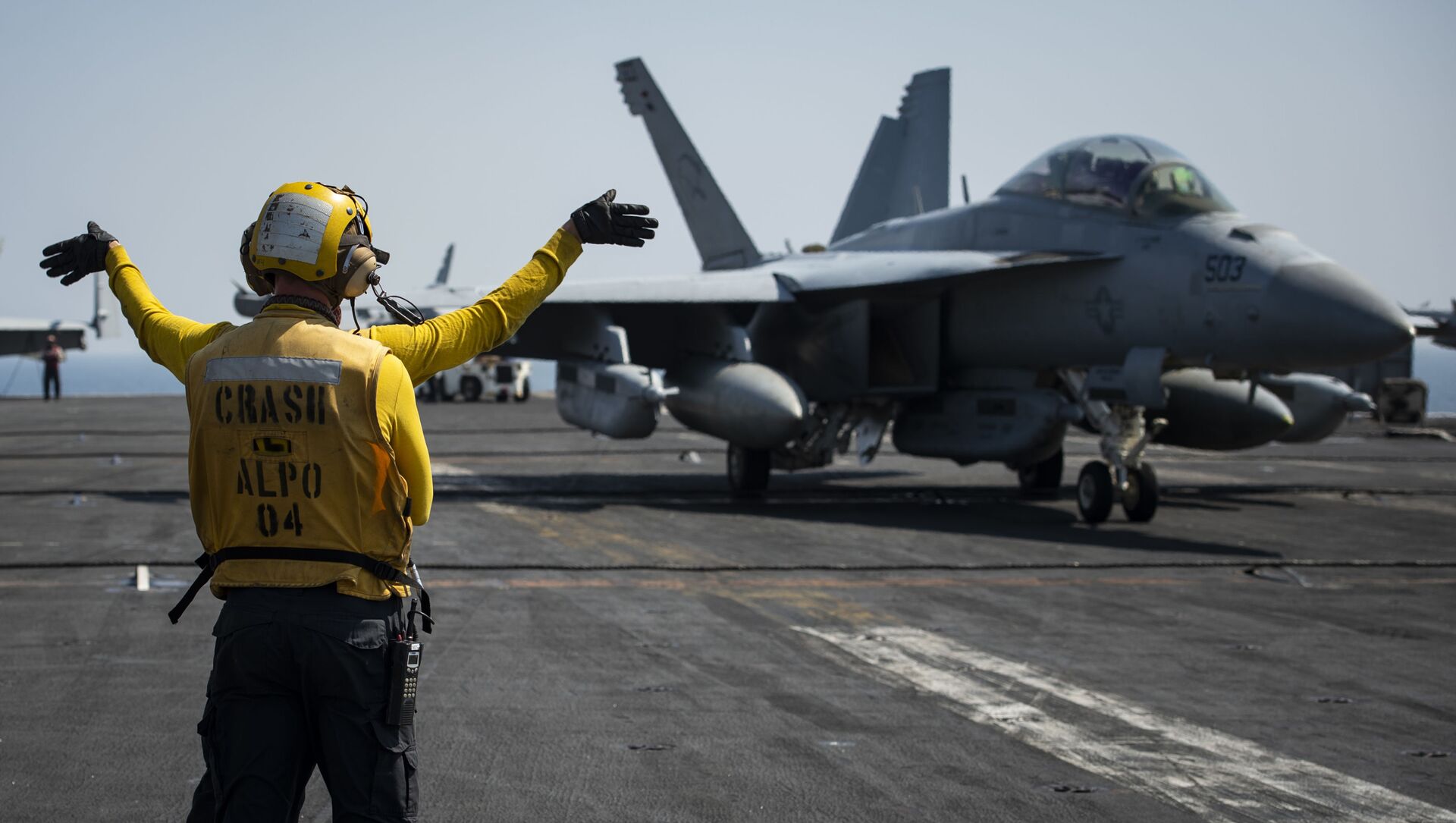Sullivan: US Capable of Suppressing Terrorism Threat in Afghanistan Without Military Presence
12:02 GMT 29.08.2021 (Updated: 13:09 GMT 29.08.2021)

© US Navy
Subscribe
The Biden administration has vowed to "hunt down" and punish the Daesh-Khorasan* terrorists who claimed responsibility for Thursday's deadly attack on Kabul Airport. Privately, Pentagon officials have expressed concerns about the US' ability to stage effective over-the-horizon strikes in Afghanistan without a presence on the ground.
The United States is fully capable of fighting terrorism in Afghanistan even without a military presence on the ground, Biden's National Security Advisor Jake Sullivan has announced.
Speaking to CBS News' Face the Nation on Sunday, Sullivan indicated that the US would consider additional strikes and "other operations" against the Daesh-Khorasan plotters responsible for Thursday's Kabul Airport attack.
"What we have proven over time in other countries...is that we are capable of suppressing the terrorism threat, including external plotting capabilities without a large permanent presence on the ground. We have done that in places like Libya and Somalia, places like Yemen. And we will do that in Afghanistan as well as we go forward", the national security adviser said, referring to failed states that the US has bombed in recent years in its global "war on terror".
"The president does not intend to start a new war in Afghanistan...That being said, he also is going to talk to his commanders about whatever set of tools and capabilities they need to get the people who attacked and killed our troops at the Kabul airport to make sure that we are degrading and debilitating the group, ISIS-K, that conducted this attack. So, yes, we will continue to take the kinds of over-the-horizon strikes like we did over the weekend against the ISIS-K facilitators and plotters. And yes, we will consider other operations to go after these guys, to get them and to take them off the battlefield", he added.
Sullivan also confirmed earlier media reports that the US would not have any formal diplomatic presence in Afghanistan beginning 1 September.
"Our current plan is not to have an ongoing Embassy presence in Afghanistan as of September 1st, at least a permanent presence. But we will have means and mechanisms of having diplomats on the ground there, be able to continue to process out [visa] applicants, be able to facilitate the passage of other people who want to leave Afghanistan", Sullivan said.
The senior official indicated that "further determinations" about a US diplomatic presence in Afghanistan would depend on a Taliban government's actions, including whether it would follow through on commitments to safe passage, "how it deals with the treatment of women, how it deals with its international commitments not to allow Afghanistan to become a base for terrorism in the rest of the world".
"But the onus will be on the Taliban to prove out its commitments and its willingness to abide by the obligations that it has undertaken and that are imposed upon it by international law", Sullivan said.
The national security adviser confirmed that the Taliban had "communicated privately and publicly" to the US side recently that they would continue to allow for safe passage even after the 31 August deadline for the US withdrawal from the country, after which all American forces in Afghanistan are expected to leave.
The US and its allies are wrapping up an emergency airlift operation to bring foreign troops, diplomats, Western nationals, and Afghans who assisted the US and NATO occupation of Afghanistan out of the country, with the last British military transport carrying troops, diplomats and Afghans leaving the country early Sunday morning.
In the aftermath of President Biden's April announcement that all US forces would be out of the country by the autumn, US officials and military planners have privately (and mostly anonymously) told US media that they have apprehensions about the ability to conduct counterterrorism operations in Afghanistan following the withdrawal of troops and intelligence personnel from the country. Such operations will have to be mounted either from US military bases in the Persian Gulf or from an aircraft carrier in the Indian Ocean, and officials have expressed concerns that this will severely limit the effectiveness of US drone, missile, and airstrikes against targets in Afghanistan.
At the same time, recent US diplomatic efforts to get one or more of Afghanistan's northern neighbours in Central Asia to host US forces appear to have failed, with The Wall Street Journal reporting last week that Russian President Vladimir Putin had told President Biden flat out at their summit in June that Russia would oppose the deployment of American forces near Russia's soft underbelly. On Tuesday, Russian Foreign Minister Sergei Lavrov said publicly that Moscow doesn't want to see US troops near Russia's southern borders.
* A terrorist group outlawed in Russia and many other countries.



